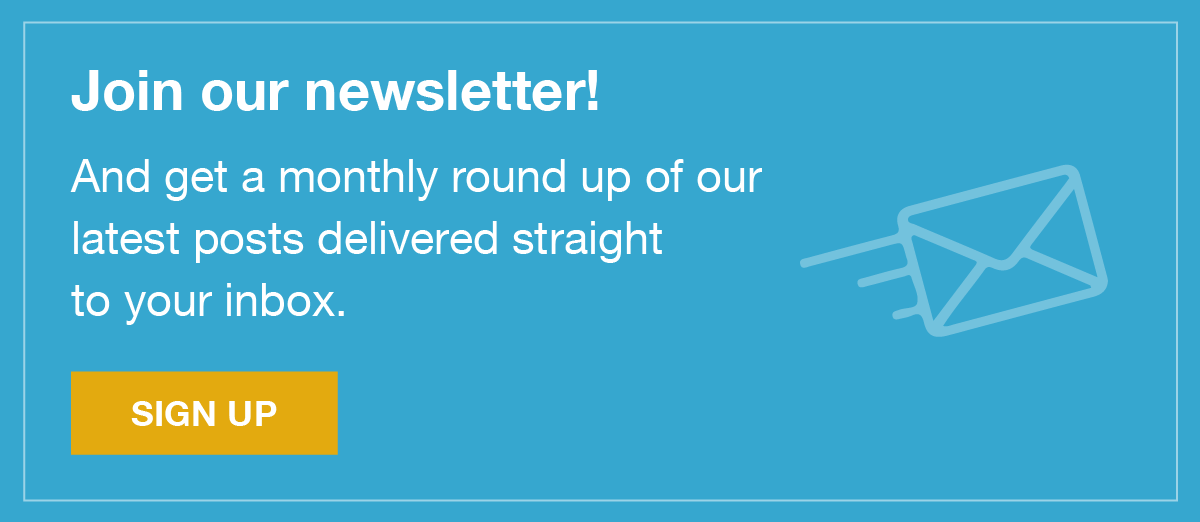In our series “Inside a Digital Marketer’s Mind”, marketing experts from various industries tell us their thoughts on the current state of Digital Marketing, including trends, developments and predictions for 2018.
In this week's interview, we share the tips and thoughts from Prasad Shringarpure, Head of Online Marketing at leading Australian online retailer THE ICONIC.
Digital marketing today
"It’s easier than ever before to get lots of traffic at a low cost."
What developments in digital marketing are you most excited about?
- I’m excited that __creative elements__ within digital advertising are starting to carve out their __own identity and feel__. Digital ads are effective, but in the past they have not been very inspiring visually. Traditional media like TV and magazines have been much better for creative expression.
- Instagram, Snapchat, Periscope and others have enabled new ways of interaction and these are extending to advertising and business. Short format video, Immersive Canvas, and Carousels are enabling marketers to __tell their brand story in new and interesting ways__. It’s been fun to watch this space in the last two years and I’m excited to see where it goes.
- It’s unbelievable how much the __digital marketer’s toolkit__ has expanded in the last few years. We can reach customers or potential customers more precisely than ever before. Marketers can reach very specific segments among their own customers or potential customers who are very similar to them across channels. The ease with which we can do this compared to just two or three years ago amazes me. It’s been exciting to watch these capabilities emerge and I’m keen to see where it goes in the next few years.
What do you see as the biggest challenges for digital marketers today?
Accurate measurement continues to be a major challenge. The past decade has seen the emergence of the multi-device world. It’s very common for customers to start their journey on one device and finish on another. As marketers, it’s important for us to offer the best experience across all devices and encourage customers to shop on whatever device they prefer. Although, this makes measurement really difficult.
At THE ICONIC we think a lot about measurement and how we can overcome some of these challenges e.g.: how do we ensure our attribution stays current and considers the behavior of our customers? I think the complexity of measurement will continue to increase over the next few years as we communicate with customers on new emerging devices like smart TVs, speakers and watches. We’re likely to have more tools at our disposal to deal with these challenges but it’s unlikely that we’ll ever have perfect data sets. We’ll have to live with logical assumptions for a while.
What in your opinion is the best tactic to reach or convert shoppers today?
I’d say that relevance of your communication is the most important factor in converting shoppers. It’s easier than ever before to get lots of traffic at a low cost. But for your messages to be effective, they need to be relevant to the customer. Marketing messages should be relevant to who the customer is, their interests, preferences and personality. Feed based advertising across social and display channels presents an opportunity to do this quite easily.
"This is not just about sticking post-it notes on a wall but valuing speed and interaction over bureaucracy."
What was your biggest surprise in 2017 - what didn't you see coming?
It wasn’t a complete surprise, but the extent of measurement and content filtering problems for the big tech companies were surprising. The complexity of online advertising has meant that it’s always been somewhat less ‘tangible’ than traditional media. The controversies really highlighted the need for the big ad-tech firms to be more transparent and allow third party audits. It seems like they’re taking some steps in that direction. It’s important for marketers to build their own framework of measurement and brand safety wherever possible and not rely entirely on publishers.
Digital Marketing tomorrow

Name 3 predictions for 2018 in ecommerce and digital marketing
- __Marketplaces will continue to grow__, making online retail much more accessible to a wider range of companies. This will enable smaller emerging brands to find customers and sell online more easily.
- I think __Snapchat will emerge as a serious contender__ in the digital advertising world in 2018 even though their recent stock performance doesn’t reflect this. Market and investor pressure is likely to make them improve focus on their advertising offering and make their user experience simpler and more accessible to a broader range of users.
- __Brands will start to get more creative with feed based advertising__ in 2018. So far, most companies simply extend images shot for a website to digital ads. As feed based advertising becomes more prominent, I think we’ll see brands use more creative photography and use assets that are created specifically for feed based online advertising.
Where is online shopping heading to in 3 years’ time?
- I expect to see a lot more __innovation__ from online retailers as they try to improve different aspects of the online shopping experience. Mobile interfaces will continue to get better. There will be more consistency in the experience when users switch between devices while shopping.
- __Shopping online will become more personal and convenient.__ The emergence of mobile devices means that the online shop-front has become much smaller. This makes it even more important for retailers to showcase content that’s relevant to the user. Greater adoption of payment options like Google Wallet and Apple Pay will mean making payments will become much more convenient.
- We’re likely to see more use of advanced technologies like __machine learning__ in various aspects of online retail e.g.: to provide more accurate information on delivery times or providing more accurate sizing recommendations within fashion retail.
- __Customer service is likely to see major changes__ as customers will expect to engage with brands as they do with their friends and family. Phone call volumes will reduce, and businesses will see more contacts on messaging apps. We’ll also see more automation and use of bots for simpler interactions e.g.: order tracking.
"It’s not enough to have a catchy slogan and beautiful creative."
What is your advice for digital marketers to stay relevant?
There have been very significant changes to marketing over the last decade. While the essence of marketing remains the same, it’s become a very technical field. It’s important for marketers to keep learning new skills to stay relevant, particularly within the areas of tech and data.
Marketers need to be comfortable working with large amounts of data and aim to build proficiency in data visualization tools like Tableau. It’s important to understand data warehousing, SQL and the basics of web programming. These days, it’s easier than ever to learn new skills with tools like Coursera, Udacity, Lynda and others.
We need to be conscious not to hang on to old approaches to brand marketing and creative. Consumers have a much stronger voice and a lot of avenues to express themselves. They have easy access to lots of information about a brand. It’s not enough to have a catchy slogan and beautiful creative. It’s essential to follow through and be true to your customers by providing great product and user experience.
I think there’s a lot to learn from tech about working with an agile mentality. This is not just about sticking post-it notes on a wall, but valuing speed and interaction over bureaucracy. Digital platforms like YouTube and social channels provide a great avenue to quickly test if your campaign or marketing message has some resonance with the market before amplifying it to a greater degree.
What are the 3 marketing tools that you can't work without?
- As an online retailer, we couldn’t function without a feed management system. It’s essential to all our online marketing channels. We’ve recently started working with Productsup and are excited about the possibilities it opens for us.
- A good analytics tool is another must-have. At THE ICONIC, we use a combination of Google Analytics and Snowplow for different use cases.
- We work with large amounts of data from various sources, so we couldn’t do without a data visualization tool. We use Tableau for analysis and visualization.
"It’s important for marketers to build their own framework of measurement and brand safety wherever possible and not rely entirely on publishers."
Is there marketing tool that needs to be developed?
Data Management Platforms are really interesting. I think they can really help make marketing more relevant and efficient. We work with some tools that cover important aspects of DMP functionality. It would be amazing if we could find ways to make DMPs more ‘light-weight.’ I think a lot more people would use them if they were easier to implement and test. I suppose that’s easier said than done.
Open source vs. paid: Where do you use free marketing software?
We think about this topic quite a lot at THE ICONIC. We use a combination of paid and open source tools for different use cases. We try not to use black box solutions and try to build custom solutions wherever possible to suit the unique needs of our business and customers.
We’re lucky to have amazing engineering and analytics teams that allow us to do this. For example, we use an open source tool called Snowplow for our web + app analytics and attribution modelling. It does take a lot of time, energy and tech resources to implement open source solutions and customize them in a way that works for you. I wouldn’t recommend it unless you have dedicated engineering resources to back up your plans.
__What you didn't know about Prasad__

Can you name a recent marketing campaign that really stuck out to you?
I’m impressed by what Koala Mattress have been doing in Australia. They’ve taken a fairly mundane product like a mattress and made the advertising fun. I really like how they use digital video to showcase the product. They also have a 5-star rating on product review, so it seems like the product measures up to the advertising.
What are your top 3 industry news publications?
Avinash Kaushik writes a fantastic blog called Occam’s Razor. He’s Google’s digital marketing evangelist, so you’ll get the occasional subtle sales pitch for Google products, but the content is excellent. It’s focused on analytics, but he writes a newsletter called TMAI (The Marketing Analytics Intersect) which I would recommend signing up for. Besides that, I really enjoy watching Gruen on ABC in Australia. The show is great fun and very informative.
What is on your reading list?
I recently discovered a marketing magazine called Magazine-B. It’s a series of small coffee table style books that feature one brand in every issue. Each brand covered is one they consider to be well-balanced. The books have analysis, interviews and really beautiful photography. I’ve picked up a bunch and will try to read them over the next few days.
I love to read so my reading list is quite long. I’ve just started reading "Lumumba – Africa’s Lost Leader" about Patrice Lumumba, who was the first prime minister of the Democratic Republic of Congo and a prominent leader among African Independence movements.
Tell us one thing people at work don’t know about you
I grew up in Bombay, so I really enjoy being in big vibrant cities. I’d rather spend time in a fast-paced city than out in nature. My most memorable holiday was in Egypt. I loved spending time on the bustling streets and markets of Cairo. I also really enjoyed the frantic energy of Rome. I’m really interested in history and both cities are fascinating because they combine a busy modern lifestyle with incredibly rich history.
![]()
About THE ICONIC
THE ICONIC is a leading online fashion and sports retailer in Australia and New Zealand. Since launching in 2011, THE ICONIC has focused on channeling the latest technology to provide access to over 700 local and international brands and over 45,000 sports products for men and women. In addition to a large selection of brands, THE ICONIC offers great customer service, fast delivery options such as 3-hour delivery in Sydney and Free Returns for over 200+ daily new products that let customers stay on top of the latest style trends.
Like what you read? Sign up for our monthly newsletter to stay informed about industry updates and events. You'll also get useful tips and learning resources to grow your expertise and online business.


![[WP Import] Inside a Digital Marketer's mind - with Prasad Shringarpure (THE ICONIC)](http://images.ctfassets.net/q17uls4wkkdz/6jXuP9QyqkgZJULgwCGi24/743b224f8e5f9e978fd706e754302e6c/interview-the-iconic.jpg?w=1200&h=675&fit=FILL)